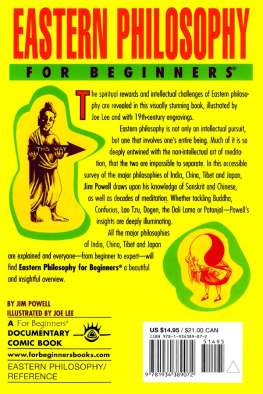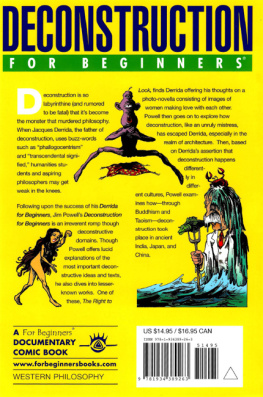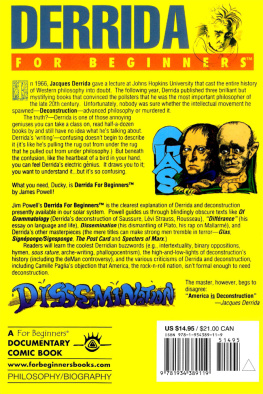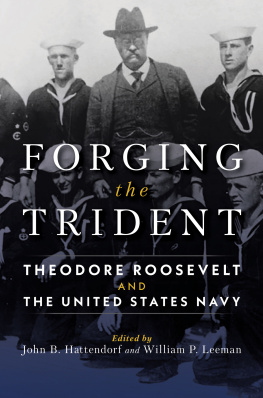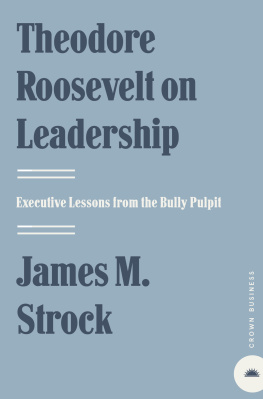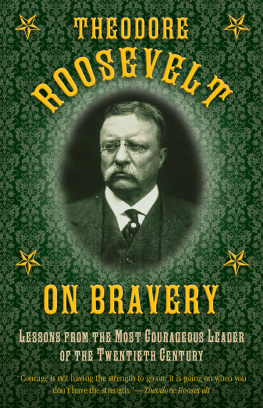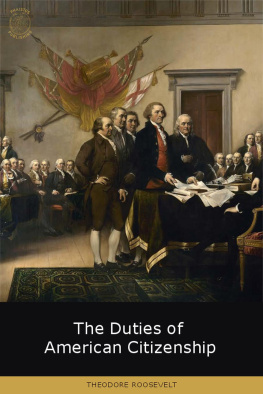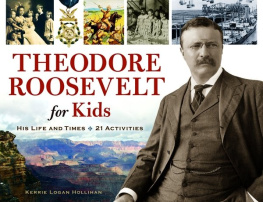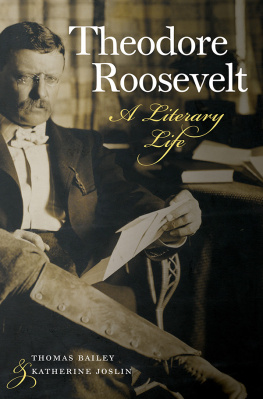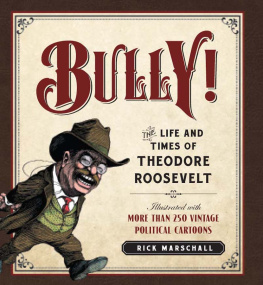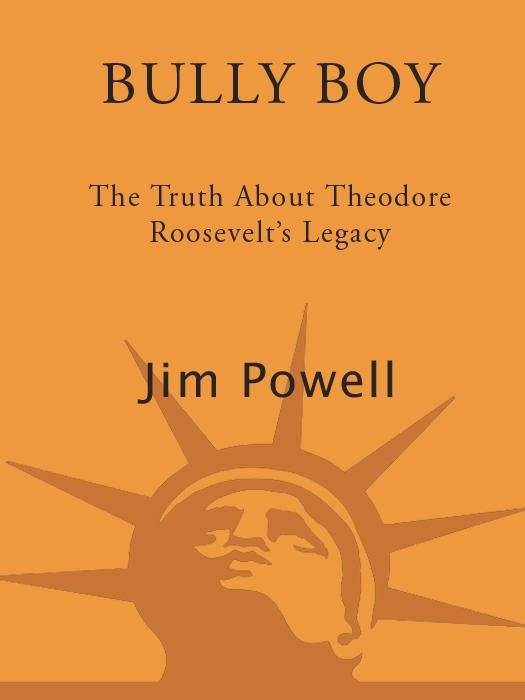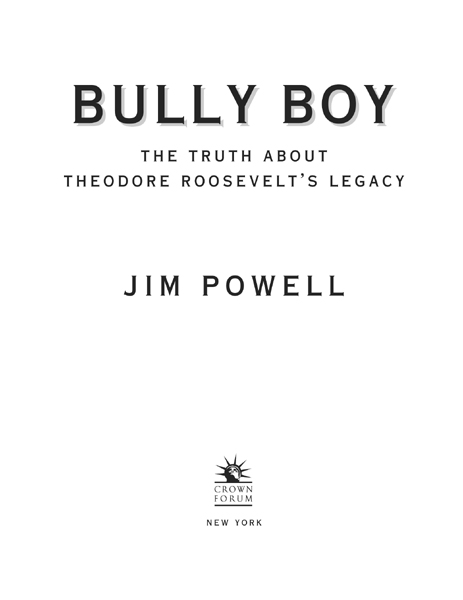ALSO BY JIM POWELL
THE TRIUMPH OF LIBERTY
A 2,000-Year History Told Through
the Lives of Freedoms Greatest Champions
FDRS FOLLY
How Roosevelt and His New Deal Prolonged the Great Depression
WILSONS WAR
How Woodrow Wilsons Great Blunder Led
to Hitler, Lenin, Stalin, and World War II
Copyright 2006 by Jim Powell
All rights reserved.
Published in the United States by Crown Forum, an imprint of the Crown Publishing Group, a division of Random House, Inc., New York.
www.crownpublishing.com
www.crownforum.com
Crown Forum and the Crown Forum colophon are trademarks of Random House, Inc.
Library of Congress Cataloging-in-Publication Data Powell, Jim, 1944
Bully Boy: the truth about Theodore Roosevelts legacy / by Jim Powell.1st ed.
1. Roosevelt, Theodore, 18581919Influence.
2. Roosevelt, Theodore, 18581919Political and social views.
3. Roosevelt, Theodore, 18581919Philosophy.
4. United StatesPolitics and government19011909. I. Title.
E757.P86 2006
973.911092dc22 2005032330
eISBN: 978-0-307-34755-8
v3.1
To Madeline, Frank, Marisa,
Justin, Kristin, and Rosalynd
CONTENTS
INTRODUCTION
The Real Theodore Roosevelt
CHAPTER 1
Why Did Roosevelt Believe More Government Power Would Solve Peoples Problems?
CHAPTER 2
Why Did Roosevelt Want to Enter Other Peoples Wars?
CHAPTER 3
Why Did Roosevelt Brag About Trust-Busting That Harmed the American Consumer?
CHAPTER 4
Why Did Roosevelt Cripple Americas Biggest Industry?
CHAPTER 5
Why Did Roosevelts Pure Food Regulators Attack Roast Beef, Corn Syrup, and Coca-Cola?
CHAPTER 6
Why Were Roosevelts Conservation Policies Wasteful and Destructive?
CHAPTER 7
Why Did Roosevelt Push to Impose an Income Tax on Americans?
CONCLUSION
What Was Theodore Roosevelts Real Legacy?
INTRODUCTION
THE REAL THEODORE ROOSEVELT
I dont think that any harm comes from the concentration of power in one mans hands.
Theodore Roosevelt
T HEODORE R OOSEVELT was a bold, unforgettable charactercowboy, big-game hunter, Rough Rider, champion of the strenuous life. Now immortalized among the presidential sculptures on Mount Rushmore, he was a vibrant figure who fascinated the American public during his life. The trademark wire-frame spectacles, mustache, and toothy grin appeared in photographs everywhere.
Biographers and political historians, too, have been captivated by Roosevelts dynamic personality. Soon after Roosevelts death, William Roscoe Thayer called the former president the supreme American, saying he spoke for America and for the civilization which he believed America fulfilled.
Even when biographers have looked beyond Roosevelts personal magnetism, they have tended to accept his stated aims at face value. In the book Theodore Roosevelt: A Strenuous Life, for example, Kathleen Dalton wrote, He wanted to use the federal government as a moral force to serve the public good, to defend what he called social justice. Like most biographers and political historians, Dalton described what Roosevelt did rather than reporting the consequences of his actions.
But one cannot properly assess an individual, especially a U.S. president, without understanding the consequences of his decisions. In my book FDRs Folly, I explained the unintended consequences of Franklin Delano Roosevelts New Deal that political historians had long ignorednamely, how it prolonged the Great Depression. In Wilsons War, I explained how Woodrow Wilson was determined to do good by entering other peoples wars and building other peoples nations, but how the unintended consequences of his decisions included the rise of Hitler, Lenin, and Stalin, and ultimately the outbreak of World War II.
Though it has been ignored, the evidence against Theodore Roosevelt is just as persuasive as the cases against Franklin Roosevelt and Woodrow Wilson. Contrary to what the many worshipful books written about him would have us believe, Roosevelt has proved to be a scourge rather than a salvation.
Bully Boy presents the real Theodore Roosevelt.
THE ROOSEVELT LEGACY
So what did Theodore Roosevelt actually do?
Roosevelt declared that the United States must carry out the proper policing of the world. To him can be traced the doctrine that America should enter other peoples wars. Since his time, the United States has become involved in dozens of wars, and hundreds of thousands of American soldiers have died in wars that had little, if anything, to do with U.S. national security.
Theodore Roosevelt inspired the successful campaign to enact one of the biggest and most intrusive of our taxes, the federal income tax. Originally intended to soak the rich, this tax ended up soaking all Americans.
Roosevelt has enjoyed a reputation as a trustbuster, a foe of monopoly, but in fact he promoted monopolies. He authorized price-fixing, and his antitrust policy turned out to be an anticompetitive weapon for high-cost producers to secure benefits they couldnt gain in the marketplace. The policy has disrupted markets and destroyed jobs.
Roosevelt demanded regulations that crippled Americas biggest industrythe railroadsby undermining its ability to raise capital. The trend toward more and more costly government regulations, creating obstacles to growth and jobs, began with him.
He signed a pure food law that led to increasing numbers of federal regulations pertaining to food and drugs. Regulations did little for pure food and a lot for special interests (like dairy farmers) who wanted to strike blows at their competitors (like margarine producers). To protect people from bad drugs, the federal government has sharply increased the costs of developing new drugs, and it has blocked access to good drugs, contributing to the deaths of thousands.
In the name of conservation, Theodore Roosevelt squandered huge amounts of money and degraded much of our natural environment. He launched a federal dam-building program that flooded canyons, disrupted natural water flows, silted up waterways, raised water temperatures, lost huge amounts of water through evaporation, and increased the salinity of irrigated soil so much that very little could grow on it. Roosevelts national forest policies contributed to overgrazing of grasslands and to forest fires of unprecedented ferocity.
Those and other disasters have been consequences of Roosevelts progressive ideology. Believing that politicians could solve the problems of the world if only they were given enough power, Roosevelt reinterpreted the Constitution to permit a vast expansion of executive power. In his autobiography he said that he declined to adopt the view that what was imperatively necessary for the Nation could not be done by the President unless he could find some specific authorization to do it. Reflecting on the U.S. presidents power, he wrote that it was not only his right but his duty to do anything that the needs of the Nation demanded unless such action was forbidden by the Constitution or by the laws.
According to biographer Henry Pringle, It seldom occurred to Roosevelt that the duty of the executive was to carry out the mandates of the legislative. Congress, he felt, must obey the president.


